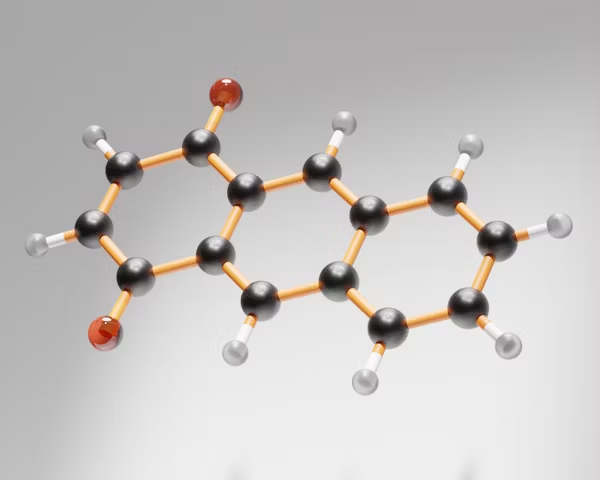Preparing for Junior College (JC) examinations can feel like an uphill battle. The stakes are high, the competition is intense, and subjects like Chemistry often cause the greatest anxiety among students.
Chemistry at JC level is far more demanding than what many encounter at secondary school. Concepts are deeper, the pace is quicker, and the application of knowledge requires a sharper analytical mind.
This is why so many students, and their parents, turn to intensive JC Chemistry tuition for support.
But what exactly does “intensive” tuition involve, and what can you realistically expect from enrolling in such a programme? In this blog post, we will walk through the structure, benefits, teaching approach, and environment of intensive JC Chemistry tuition.
By the end, you’ll have a clear sense of whether such a programme is the right step for you or your child.
The Structure of Intensive JC Chemistry Tuition

Source: Unsplash
Unlike regular weekly tuition, intensive JC Chemistry programmes are designed with a heightened level of focus and commitment.
Their purpose is not just to “top up” a student’s understanding but to give them a structured, accelerated path to mastering the subject in preparation for the A-Level exams.
Typically, these programmes are organised into small class groups of around eight students. This size strikes the right balance: large enough for discussions and peer learning, yet small enough to allow the tutor to keep track of each student’s progress and challenges.
Classes are often held multiple times per week, and each session usually runs for two to three hours. The frequency and length of lessons mean students are continually exposed to the material, keeping concepts fresh in their minds.
It also reduces the risk of cramming just before exams, as revision and practice are already built into the programme structure.
Another important feature is the planned curriculum timeline. Lessons are sequenced carefully so that topics build upon each other in a logical way, ensuring students do not feel “thrown in the deep end”.
This scaffolding approach helps learners gradually strengthen their foundation while moving into more complex areas of chemistry.
Key Benefits of Intensive JC Chemistry Tuition
So why do students commit to this demanding schedule? The advantages are clear:
2. Exam simulation: Many programmes incorporate regular practice exams and timed quizzes that closely resemble the real A-Level format. These mock tests help students get used to the pressure of timed assessments, while also pinpointing weak areas to revisit.
3. Consistency and reinforcement: The steady rhythm of lessons and practice helps students retain knowledge far more effectively compared to irregular revision. By revisiting and applying concepts regularly, retention is improved, and last-minute panic is avoided.
4. Confidence boost: Perhaps most importantly, students often come out of these programmes with a noticeable increase in self-confidence. Knowing that they have consistently prepared with expert guidance makes them more assured when they walk into the exam hall.
Beyond academic benefits, many students also find that intensive tuition improves their discipline and study habits, since they are expected to keep up with the demanding pace.
Curriculum Focus and Content Coverage
Teaching Methodologies and Learning Environment
One of the hallmarks of intensive JC Chemistry tuition is the teaching style. Instead of relying solely on traditional lectures, tutors employ a variety of methodologies designed to keep students engaged and thinking critically.
Interactive discussions are common, with tutors posing thought-provoking questions and encouraging students to reason out answers. This dialogic method ensures that learning is not a passive experience but an active process where students construct their understanding.
Practical demonstrations, problem-solving exercises, and even group discussions are often integrated into lessons. The combination of approaches caters to different learning styles — whether a student learns best by seeing, doing, or explaining.
The learning environment itself is another key differentiator. With smaller class sizes, students feel more comfortable asking questions they might hesitate to raise in a large school setting.
The atmosphere tends to be collaborative rather than competitive, creating a supportive community where students can share insights and learn from one another.
How to Choose the Right JC Chemistry Tutor
Selecting the right tutor or tuition centre is one of the most important decisions you can make. After all, the effectiveness of the programme rests heavily on the quality of teaching.
When evaluating a tutor, consider the following:
2. Teaching style: Every student has unique preferences. Some may thrive under a fast-paced, exam-focused approach, while others may benefit from a slower, conceptual explanation. Trial classes are an excellent way to assess compatibility.
3. Support materials: Strong tutors often provide well-prepared notes, worksheets, and practice papers that are aligned with the A-Level requirements. These resources save students time and ensure they are revising efficiently.
At T&T Learning Hub, for example, the founders themselves serve as the tutors. This means the same individuals who built the centre’s teaching philosophy are directly involved in delivering lessons to students.
With class sizes of about eight, they are able to balance structure with individualised attention.
Conclusion
Embarking on an intensive JC Chemistry tuition programme is not a light commitment, but it is one that has proven transformative for many students.
The combination of structured lessons, targeted practice, expert teaching, and a supportive environment can dramatically improve both understanding and performance.
For students who feel overwhelmed by the pace of school lessons or who struggle with self-directed revision, such tuition provides a lifeline. It not only prepares them academically but also instils habits of consistency, resilience, and disciplined study.
Ultimately, success in JC Chemistry still depends on a student’s personal effort and dedication. Tuition can open the door, but it is up to each learner to walk through it with determination.
With the right support, though, the journey to mastering Chemistry — and achieving exam success — becomes much more manageable.
FAQs
Q: How many hours a week should I expect to dedicate to intensive JC Chemistry tuition?
A: Typically, intensive tuition classes are held 2-3 times a week, with each session lasting 2-3 hours. However, additional self-study and revision are recommended.
Q: Are there any prerequisites for joining an intensive JC Chemistry tuition program?
A: Generally, students should have a basic understanding of Chemistry concepts. However, tutors often provide diagnostic tests to tailor the program to individual needs.
Q: Will intensive tuition guarantee an A in my JC Chemistry exam?
A: While intensive tuition can significantly enhance understanding and performance, achieving an A also depends on the student's effort, consistency, and dedication to studying.
Q: Can I switch tutors if I find the teaching style incompatible?
A: Most tuition centers offer flexibility in switching tutors, provided there is availability. It's important to communicate any concerns early on to find the best match for your learning style.

